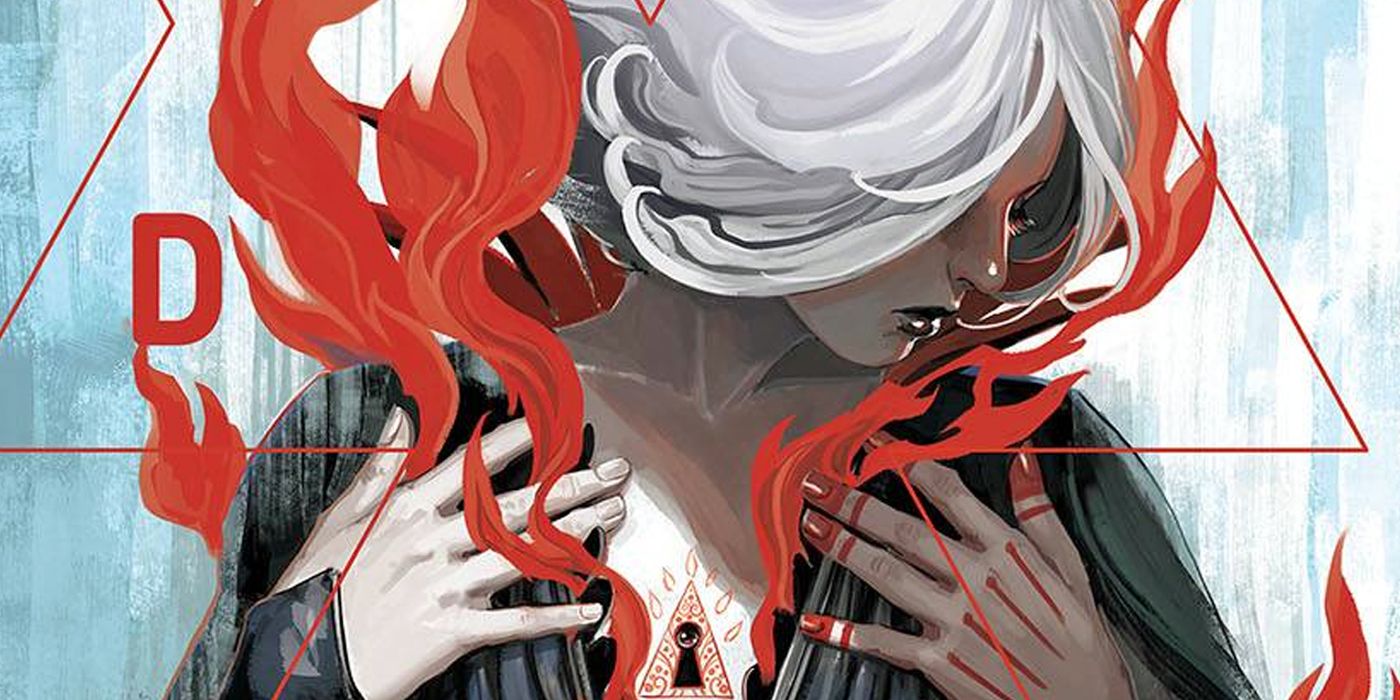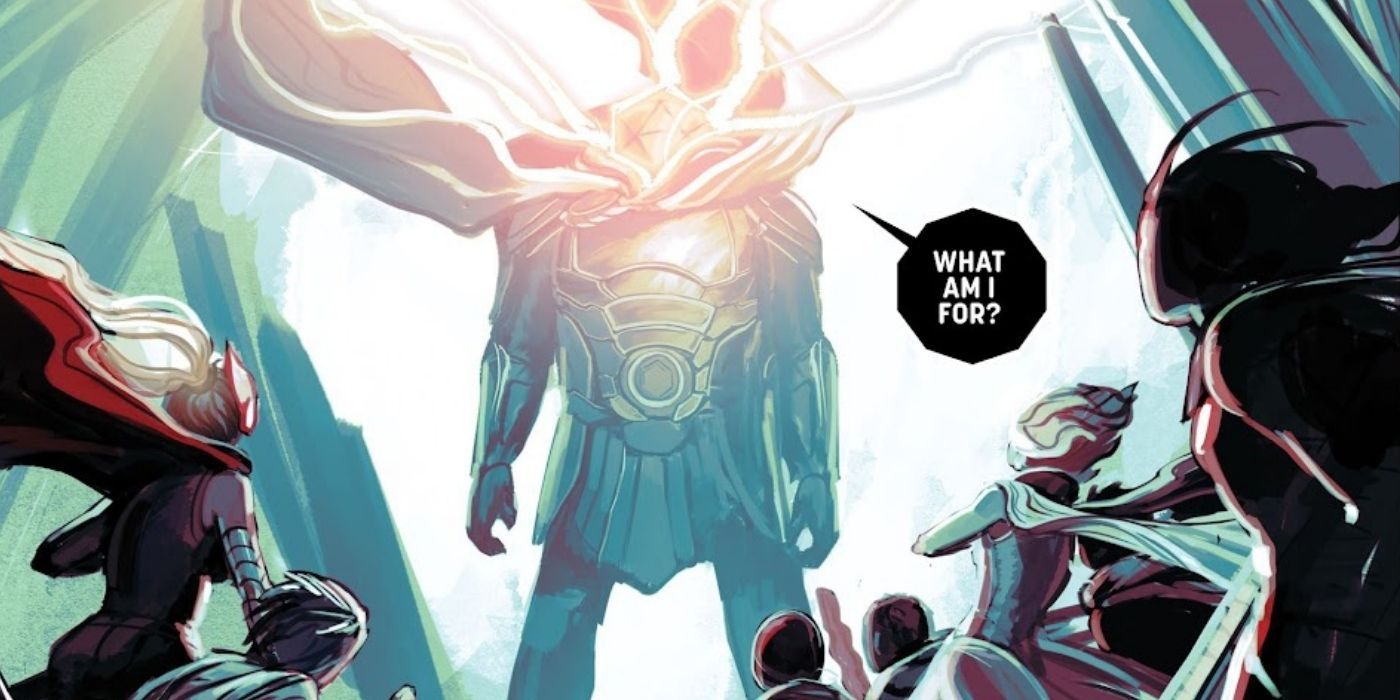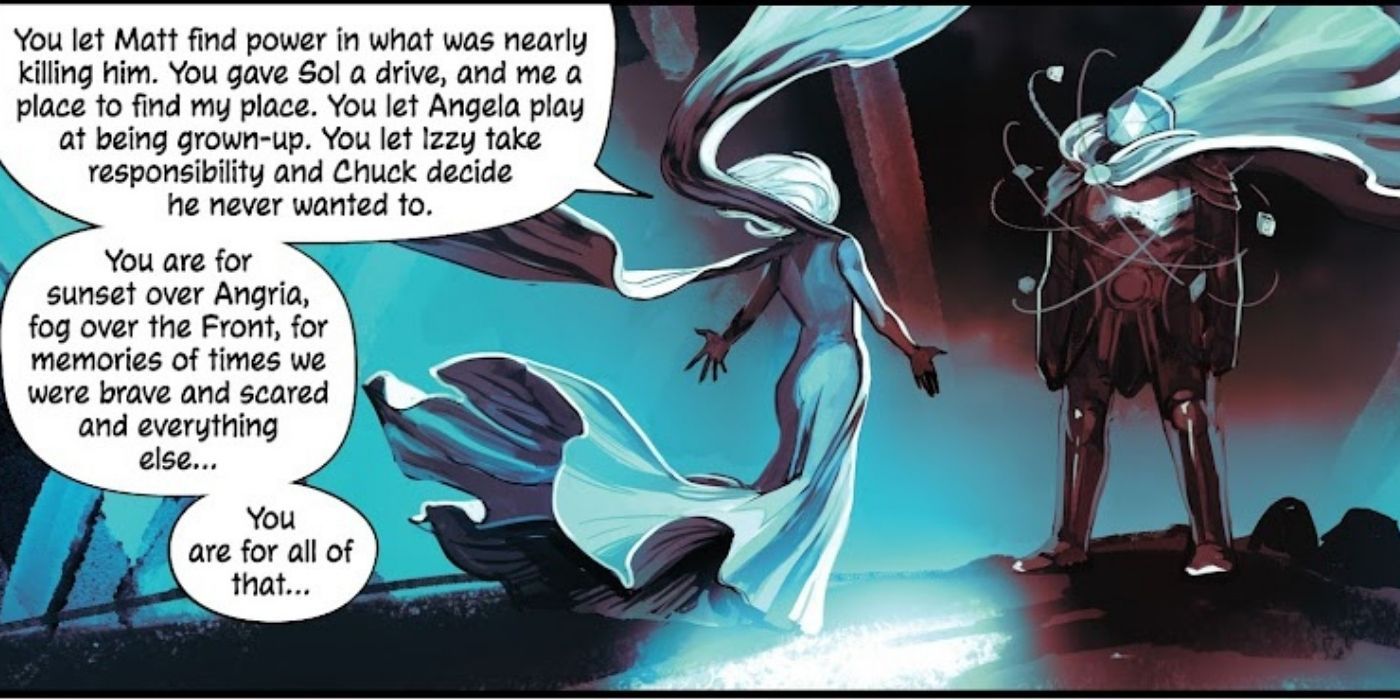WARNING: The following contains spoilers from Die #20, on sale now from Image Comics.
After 20 issues, Kieron Gillen, Stephanie Hans, Clayton Cowles, Rian Hughes and Chrissy Williams' dark fantasy series Die has finished. The Dungeons & Dragons-inspired epic follows a group of characters who sat down to play a tabletop roleplaying game in the '90s and were trapped in the world of the game by a set of magic dice.
They eventually escaped, but the things they experienced in the fantasy world continued to influence them throughout their adult lives until they were once more sucked back into the game world decades later. But instead of telling a generic adventure tale with its isekai premise, the story highlighted the deep psychological and historical complexities influencing D&D and its players, culminating in a philosophical conversation about the nature of fate versus free will.
Upon returning to the world of Die, the characters fight against supernatural creatures both for survival and to return home. They eventually discover that the magical dice that trapped them are about to be mass-produced and sent back to Earth. They fight to stop this before it begins but are too late. In the series finale, the characters come face-to-face with a sentient 20-sided die, an event that appropriately takes place in Die #20.
This entity, "the god at the end of time," is the living manifestation of the fantasy world, a being who gained consciousness, created the magical dice and used its nigh-omnipotence to alter the past and create the circumstances that brought itself into being. It awakens just before the players encounter it, but for all its power, the god of Die needs them to answer a question: "What am I for?"
There is an irony to this. Just as humans have long debated their purpose, so too does the newborn god, even though this entity quite literally controls fate itself. When prompted to explain the backstory of its existence -- and of the world -- the divine being says that it was only awakened 600 seconds ago, but it used its influence to bridge the space between Earth and itself, inspiring the ideas of early wargaming. These ideas in turn led to the ruthless mechanized warfare of WWI, which inspired J.R.R. Tolkien to write The Lord of the Rings after he fought in the war, which eventually led to the creation of D&D, and finally to the creation of Die.
This being altered the past to manifest itself as a self-made god. In other words, it embodies predestination. This plays into a concept introduced earlier in the story, in which dice are compared to the tools used to divine the future, a less violent version of the reading entrails in ages past. After all, in D&D and other roleplaying games, the players' fates are determined by the roll of the dice.
However, player agency still matters. The god-game exists in a quantum state, awaiting a group of adventurers who will give it purpose by agreeing to help it manifest itself. The characters must decide whether to help it, closing the time loop and thereby having their own agency, or else refuse to help and risk being destroyed. However, the god-die will come into existence without or without them. If they refuse, some other players from another possible timeline will aid in Die's ascendancy. No matter what, Die will come into being. All that the players have to choose is whether they will be complicit, and therefore have a chance of surviving and learning from the past.
There is a deeper meaning to the broad strokes of the plot here. Games and game worlds have no purpose without players interacting with them. When Die asks "What am I for," one of the characters, Ash, eventually answers: "You were a place of adventure and glamour when life was dull. You were a place to explore the worst parts of ourselves. And the best...You were a place to learn lessons and their costs."
For all that the dice might determine the outcomes of decisions, players still make those decisions. This reinforces the idea that roleplaying games are more than mere entertainment. They give players a chance to learn and grow. For the most part, events are beyond players' control, and their fates are left to the whims of the dice, just as much of life is beyond people's control. However, the decisions people make in a gaming world still matter and their effects continue to be felt long after the game comes to an end, as this issue eloquently illustrates.



